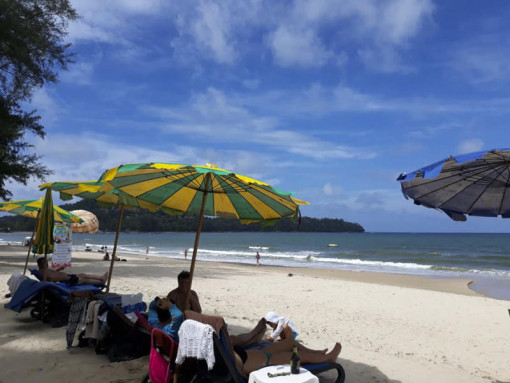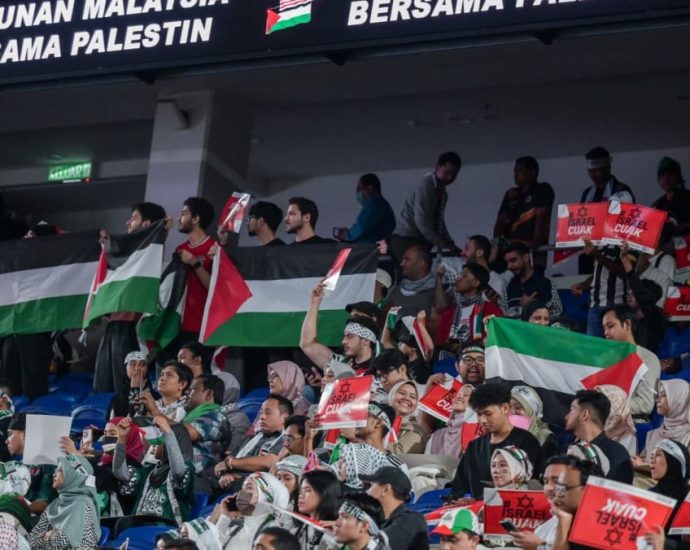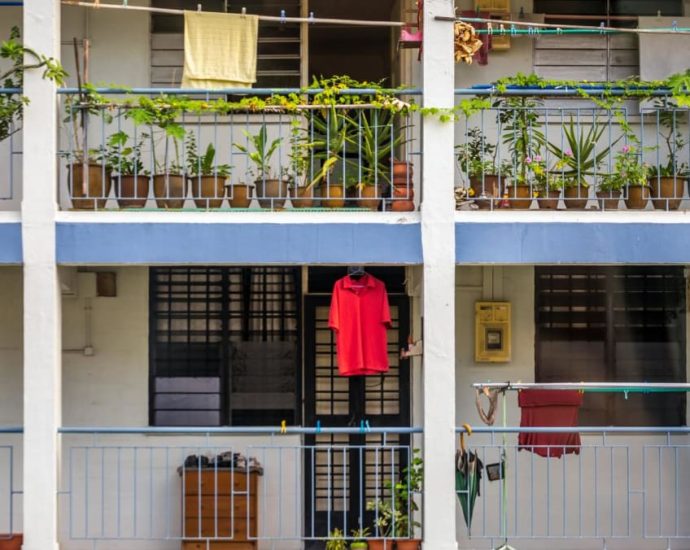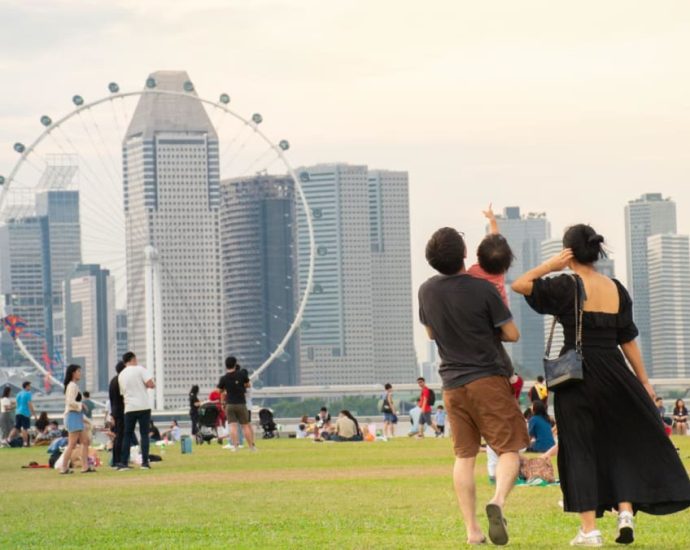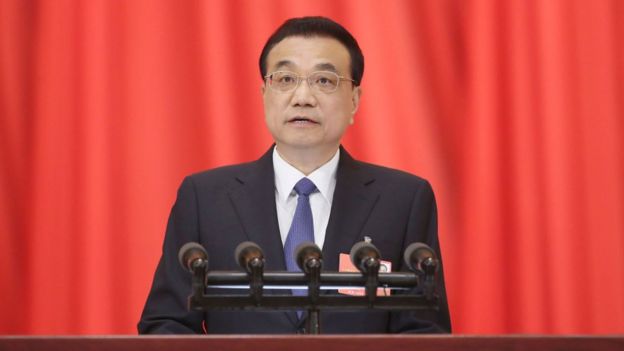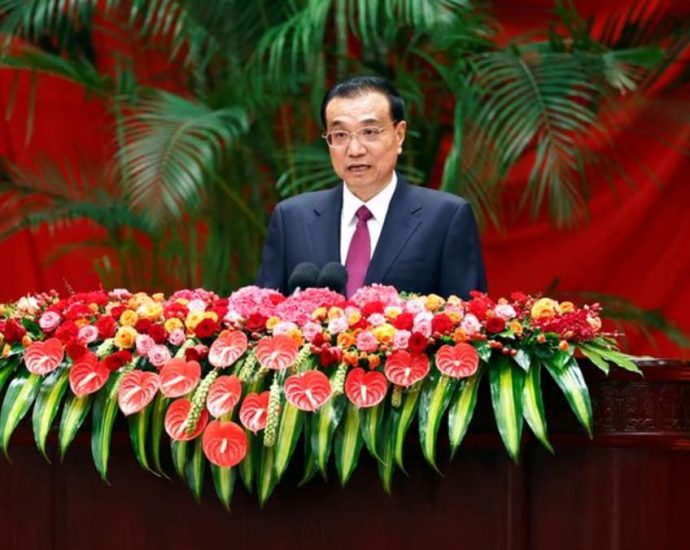Russian, Indian nationals detained in Phuket villa raid
PUBLISHED : 27 Oct 2023 at 10:08

PHUKET – A Russian and two Indian nationals were arrested and charged for overstaying their visas during a police raid on a villa in Bang Thao beach area of Thalang district on Thursday.
At about 1.15pm, a team of immigration and tourist police went to the villa, with a warrant issued by Phuket Provincial Court, for the arrest of an Indian man on charges of threatening and intimidating other people.
The officers did not find the Indian man, who was believed to be hiding inside the premises. However, they instead came across Georgi Shkodo, a 33-year-old Russian man whose visa had expired. He was taken to Cherng Talay police station for questioning.
Four policemen remained outside the villa for surveillance.
An unexpected incident took place when a foreign man came out of the villa wielding a baseball bat. He attacked the police with the bat, injuring two officers. The police called for reinforcements.
At about 5.15pm, a 30-strong special operation team and immigration police were dispatched to the villa. In a search, the police detained five foreigners for passport and visa checks. They were taken to Cherng Talay station for questioning.
Among the detained foreigners were two Indian men, identified on as Katik, 29, and Yuvraj Saxena, 25. Both were found to have overstayed their visas.
Despite tough talk, Iran knows better than to attack Israel
Iran has warned Israel of severe consequences from “multiple fronts” if it does not halt its relentless bombardment of the Gaza Strip.
This warning is widely interpreted as a declaration of intent for Iran to enter the conflict via its allies and proxies. The Hezbollah militant group, which is already engaged in low-level skirmishes across the Israeli border with Lebanon, and the Assad regime in Syria are both closely aligned with Iran.
Given Iran’s increasingly hostile rhetoric, Washington and Tel Aviv have been deliberating over what to do if and when Tehran gives the order to engage.
Israel’s position on Iran has been uncompromising. In the past, it has advocated for surgical strikes on Iranian nuclear facilities and has been implicated in the assassination of Iranian nuclear scientists.
Iran’s potential entry into the Gaza war would open a new chapter in hostilities between the enemies – and take the war directly to Iran’s doorstep.
Military and political repercussions
Despite its warnings to Israel, Iran appears reluctant to take the route of directly entering the conflict for fear of risking a harsh Israeli response.
As a result, Iran has been maintaining a difficult balance between its ideological rhetoric and political expediency. But Iran is playing with fire. The balance it seeks to maintain can be easily disrupted in the unpredictable fog of war.
Tehran’s official line is extreme. It denies Israel the right to exist, and refers to it not as a state, but as a Zionist entity. Iranian official declarations are replete with anti-Israel tirades.
In June, Tehran unveiled its latest missile and boasted that it had the range to reach Israel. Banners announcing the missile had the words “400 seconds to Tel Aviv” printed in Persian, Hebrew and Arabic.

This message is integral to the ideology of the ruling regime and a rallying cry for its supporters.
Anti-Israel and anti-US venom is a staple of political discourse for the hardline faction that governs Iran under Supreme Leader Ali Khamenei and President Ebrahim Raisi. This faction is bolstered by its control of the judiciary, the parliament and the Islamic Revolutionary Guards Corps.
In fact, there are now calls from the hardline camp to follow through with the promise of destroying Israel. The editor-in-chief of Kayhan Daily, known as the mouthpiece of Khamenei, has called for an official declaration of war against Israel.
However, the authorities do not have a death wish. They are fully aware that open confrontation with Israel – or even a confrontation by one of Iran’s proxies – could be very costly for Iran. Not only could there be an Israeli military retaliation on Iranian facilities, but also political repercussions for a regime increasingly unpopular with its own citizens.
The Iranian public is disillusioned with the regime’s ideological zeal against Israel and sees it as a ploy to hide corruption, economic woes and the inability of the government to provide for its citizens.
The chant often heard at protests over the past decade – “Neither Gaza nor Lebanon, I sacrifice my life for Iran” – is a vivid reminder of the gap between the ruling regime and the population.
Widespread protests across Iran following the killing of Mahsa (Zhina) Amini have shown the depth of the regime’s unpopularity in the past year. Given this, a military confrontation with Israel could have unpredictable political consequences for the regime.
A hostage of its own rhetoric
The ruling regime in Iran has been mindful of US and Israeli red lines to avoid open hostilities.
After the US assassination of celebrated war hero Qassem Soleimani in January 2020, for example, Iranian authorities were enraged and promised “harsh retaliation.” But the response was relatively meek: a pre-warned strike on two Iraqi airfields that housed US troops.
Iran has also followed the same approach in relation to Israel. The survival of Bashar al-Assad’s regime in Syria with Russian and Iranian backing ensured Iran has the capacity to launch attacks on Israel, but it has deliberately refrained from doing so.
This is despite the fact Israel has repeatedly targeted Iranian assets in Syria. In 2018, for example, Israel carried out air sorties in Syria that hit 70 Iranian targets.
In 2020, a similar operation was carried out by Israel to attack Iranian military targets in Syria. And again this year, before the Gaza War, Israel launched air strikes against Iranian forces in Syria. Iran’s response to these acts has been mute.

Iran is a hostage of its own inflammatory rhetoric. The regime has made its political fortune rejecting the West and Israel. The Palestinian cause has been trumpeted as central to its worldview.
This posture has attracted a following in the Muslim world. And Iran shamelessly exploits this to gain advantage over its Arab rivals, whom Tehran accuses of betraying Palestinians and their plight.
Yet, the Iranian leadership is fully aware that crossing red lines and engaging in open confrontation with Israel (or the US) could pose an existential threat to the regime. That is why Iran has consistently pulled back from the brink of war and opted for low-intensity skirmishes via its proxies that serve its ideological grandstanding but do not jeopardize its survival.
Whether Iran can continue this game of brinksmanship in such a tense and explosive environment is an open question. Iran may not order Hezbollah to unleash its missiles on Israel, but this doesn’t mean it couldn’t happen by accident, through a chain of errors, or even by design.
Just because Iran has trained and sponsored Hezbollah, we cannot automatically assume Tehran has full control over all of its levers.
Shahram Akbarzadeh is Convenor of the Middle East Studies Forum (MESF) and Deputy Director (International) at the Alfred Deakin Institute for Citizenship and Globalization, Deakin University, Deakin University
This article is republished from The Conversation under a Creative Commons license. Read the original article.
Schneider Electric invests US$875,000 to collaborate with the Sustainable Tropical Data Centre Testbed in Singapore
Schneider to provide energy management solutions on top of the investment
Tropical climates add extra complexity in maintaining controlled cooling for data centres
Schneider Electric is investing US$875,000 (RM4 million) to collaborate with the Sustainable Tropical Data Centre Testbed (STDCT) – Asia’s first-of-its-kind data centre testbed specifically designed for the tropical climate. The…Continue Reading
Malaysia’s educational institutions to hold Palestine Solidarity Week
PUTRAJAYA: All educational institutions under Malaysia’s Ministry of Education (MOE) will be holding a Palestine Solidarity Week from Sunday (Oct 29) to Nov 3, in response to the government’s stance of standing together to defend the rights and freedom of the Palestinian people. The MOE said the programme will beContinue Reading
Uplift lower-income families towards ‘sustained progress’, close early education gaps: Forward SG report
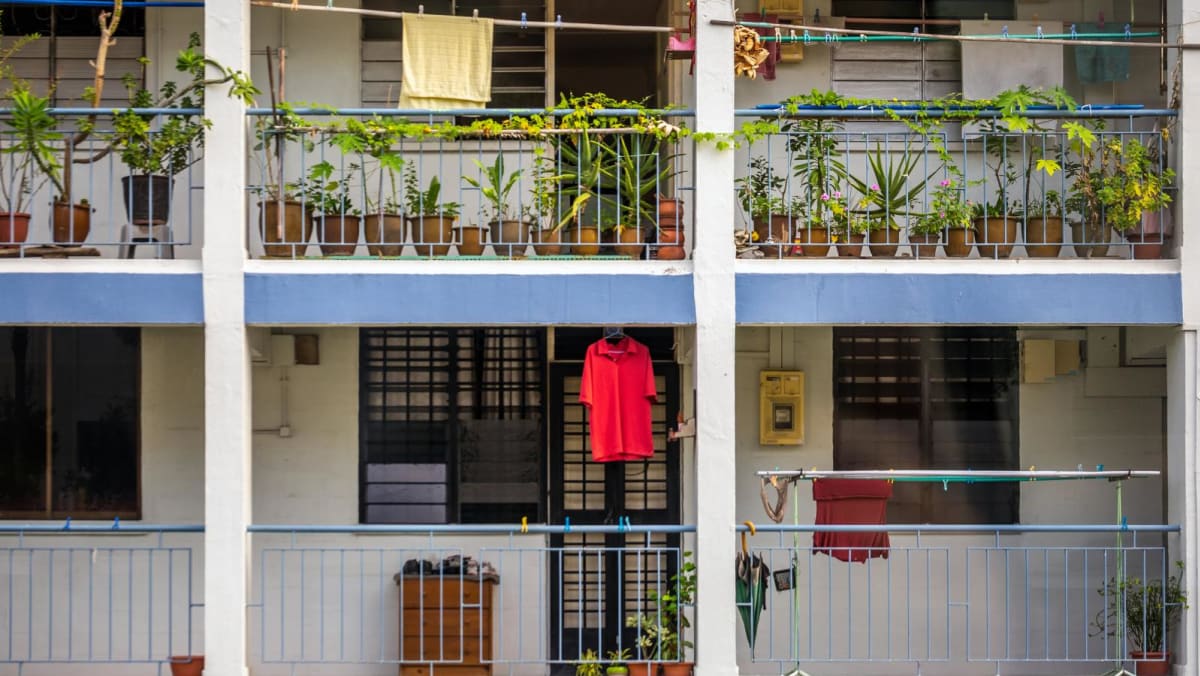
SINGAPORE: To support and uplift lower-income families, look to social empowerment rather than social assistance.
This overarching message underpinned two main approaches that the Forward SG report, which was released on Friday (Oct 27), put forth to help such families.
Doing so will “strengthen families’ sense of agency and ownership over their own circumstances, and give them the confidence to work towards improvements in their lives”, the report said.
First, uplift lower-income families towards “sustained progress”. And second, close the early education gaps for these children – particularly among those aged three to four – to ensure they don’t risk falling behind their peers in primary school.
The report, which drew findings from the Forward SG exercise carried out over the past 16 months, recognised that the challenges of social mobility and inequality will “get tougher” in Singapore’s next phase of development. It noted existing efforts in “proactively dealing” with these issues to avoid “starting from a bad place”.
The report added, however: “There is a natural tendency for families with greater means to pass on advantages to their children, enabling them to do even better. Over time, those from lower-income households will find it harder to catch up, and their children will also face many starting disadvantages.”
While the government “will do more to provide equal opportunities, temper unequal outcomes and prevent people from getting trapped in a permanent underclass”, it seeks to ensure that these actions “do not lead to a greater sense of dependency and entitlement”.
Instead, they should “complement and reinforce individual and family effort, as well as contributions from other stakeholders”.
The report highlighted that the benefits of social empowerment can be seen through the Fresh Start Housing Scheme, which since 2016 has helped second-timer families with young children living in public rental flats own a home again.
Under the scheme, eligible families can receive a housing grant if they meet certain conditions, such as stable employment, well-managed finances and regular school attendance of their children. The families also receive support from a social service agency to help them stay on track for home ownership.
In March last year, the government announced that some low-income households would get higher grants to buy their own home as part of enhancements to the scheme. They would also be allowed to buy three-room flats with shorter leases, beyond the current option of two-room Flexi flats with shorter leases.
Forward SG report outlines caregiving support, possibility of more parental leave to help families

SINGAPORE: From welcoming a newborn to entering one’s golden years, Singaporeans must be better supported no matter their evolving circumstances and needs, the Forward SG report released on Friday (Oct 27) said.
The report, which comprised findings from the Forward SG exercise held over the last 16 months, underscored the need to support families at every stage of life and empower seniors to age well.
These key shifts are required for Singapore in light of smaller family sizes amid an ageing population. The latter adds to the caregiving burden on individuals, particularly among the “sandwich” class who have to raise young children and care for their elderly parents at the same time.
Today, one in five Singaporeans are aged 65 and older, and it will be one in four by 2030, the report added, calling it a demographic shift that will be “the most significant social transformation of our generation”.
At the same time, young Singaporeans continue to aspire towards marriage and parenthood, but many are anxious about securing a flat or being able to afford starting a family while juggling work commitments, the report noted.
It outlined several measures to meet these varied needs across different life phases.
BETTER INFANT CARE, PARENTAL LEAVE, CAREGIVER SUPPORT
The report cited concerns from many parents that a child’s care needs are the greatest during their first 18 months, and they may struggle to find ideal caregiving options.
To provide parents more assurance that they can raise their children while fulfilling their aspirations, centre-based infant care places will be increased by about 70 per cent or 9,000 more places by 2030. This will be especially helpful for parents without “familial or alternative caregiving arrangements”.
“Affordable, safe and reliable” childminding services will also be introduced as an additional infant care option.
The government will study the feasibility of providing more parental leave so that parents, especially fathers, can be more involved raising their infant. It will also work with tripartite partners to consider the impact of added parental leave on employers.
SkillsFuture top-up for mature mid-career Singaporeans, more support for ITE grads: Forward SG report

But schools alone can’t fully help students attain their evolving aspirations or redefine success, the report acknowledged. As such, the government will develop more partnerships between schools, such as for CCAs, to provide students with more opportunities.
Community partners and industry players are also encouraged to work with the Education Ministry and other academic institutions on education modules for students and adult learners.
UPSKILLING EARLY
Recognition for diverse career choices entails rewarding all jobs more fairly. Existing initiatives like Workfare, the Progressive Wage Model and the local qualifying salary have helped reduce wage gaps, but the report noted that more can be done to recognise “hands” and “heart” jobs.
These encompass professional tradespeople like electricians and plumbers, and many in the healthcare and aged care sectors. They are often not as “well regarded” as those in “head” work – the knowledge-related, white-collar roles, the report said.
New initiatives will be developed to support those who want to pursue such “hands” and “heart” careers.
Finally, the government will also study how to help younger ITE upgraders defray the costs of obtaining a diploma to encourage them to upskill and upgrade early, and give “greater recognition” to those who do.
“When they graduate, we can also top up their Central Provident Fund (CPF) to give them a head start to purchase a home or save for their retirement,” the report proposed.
Deputy Prime Minister Lawrence Wong, who chaired the Forward SG exercise, in January highlighted concerns around the starting salaries and career progression for polytechnic and ITE graduates in comparison with their peers from university. The median starting salary for university graduates was about twice that of ITE graduates and one-and-a-half times that of polytechnic graduates.
“These salary gaps can be narrowed over time if ITE graduates upgrade and refresh their skills. Many already do so by getting a diploma or more in their working years. This enables them to secure better career prospects with higher salaries,” the Forward SG findings suggested.
‘Embrace wider definitions of success’: Forward SG report lays out roadmap for a new Singapore vision
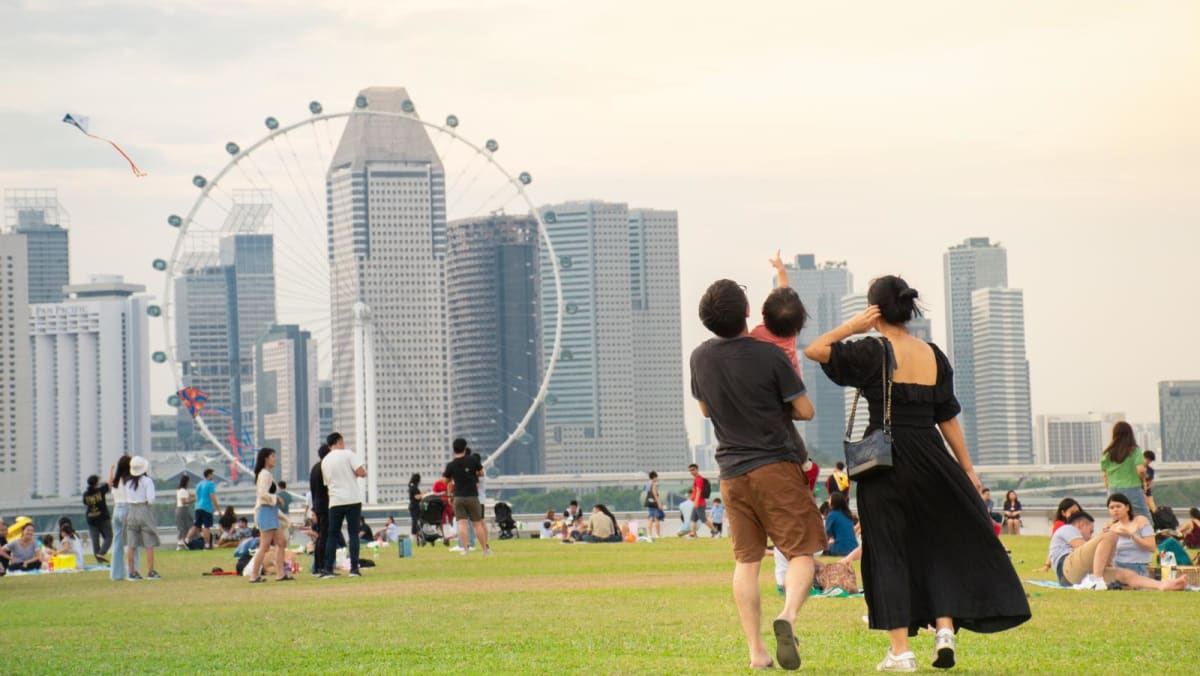
6. Invest in a shared tomorrow
Singapore can deal with today’s challenges while providing a strong foundation for the future by “stewarding our limited resources responsibly and sustainably” on three main fronts, the report said.
These include optimising limited land and environmental resources, strengthening our food and water security, and upholding fiscal prudence and responsibility.
“All these will require more public resources, which come largely from tax revenues, as well as investment returns from our reserves. Difficult decisions will have to be made on how we will prioritise our spending, who pays, and how to keep our overall system fair and equitable,” the report stated.
“These considerations of fairness apply not just to today but also across generations. If we only think short term, we may end up short-changing the next generation, who will inherit a Singapore that is ill-prepared for the challenges of the future.”
7. Do their part as one united people
The report concluded that the collective strength of Singapore’s society depends on its unity and how people care for each other.
Underpinning this is a need to nurture a stronger culture of giving, especially those who have done well, and better connect donors and volunteers to local community needs.
It also requires strengthening multi-racialism and the Singaporean identity, as well as creating more avenues for civic participation.
“It is clear that Singapore is strongest when we stand together – when we recognise that caring for each other is also the best way to care for ourselves, and when we develop a deep sense of kinship and trust in one another,” the report said.
“In particular, those who have succeeded should do their part to uplift others in society.”
Ultimately, a “functioning and robust social compact creates trust”, the report added. “It leads to a sense of assurance that someone’s got our interests in mind – that we have got each other’s backs.”
While some of the key shifts are underway, details of other initiatives will be announced in the coming months and at Budget 2024.
Members of the public can explore the recommendations put forth in the report by visiting the Forward Singapore Festival at Gardens by the Bay from Friday to Sunday. The festival will then make its way into various heartland locations until Jan 28 next year.
Former China PM Li Keqiang dead at 68
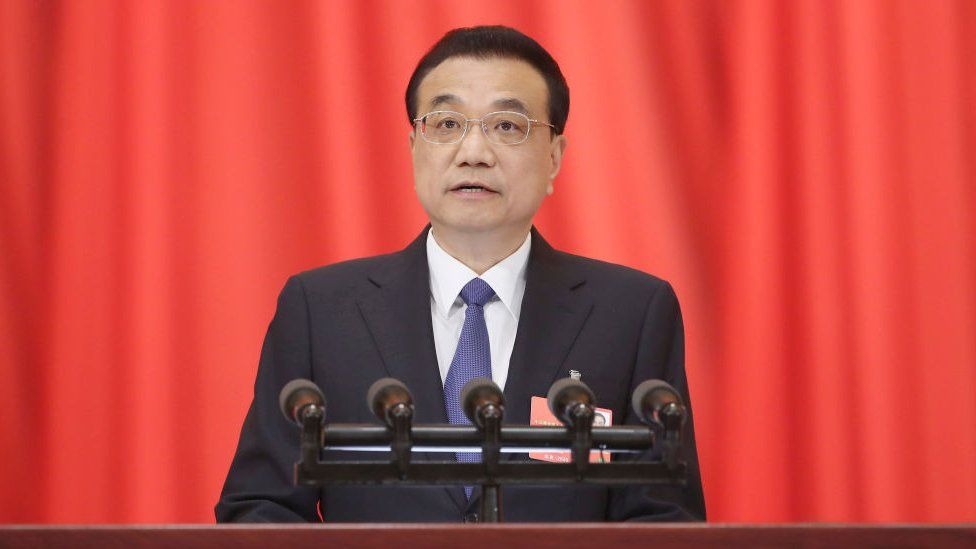 Getty Images
Getty ImagesFormer Chinese premier Li Keqiang has died at 68, state media has reported.
He was the second most powerful man in the ruling Chinese Communist Party until he retired last year.
State media said had been “resting” in Shanghai when he suffered a sudden heart attack on Thursday.
He passed away ten minutes past midnight on Friday despite “all-out efforts” to revive him, state broadcaster CCTV said.
Li rose through the party ranks despite not having any power base, and at one point was even pegged for the top role of president.
In his final term, he became the only incumbent top official who didn’t belong to Chinese President Xi Jinping’s loyalists group.
The elite Peking University-educated leader was known for being pragmatic in economic policies.
He developed a reputation as a leader who works for the less privileged, with policies that focus on reducing the wealth gap and providing affordable housing.
A trained economist, he was initially given the reins of China’s economy, but in recent years was sidelined in that role.
This breaking news story is being updated and more details will be published shortly. Please refresh the page for the fullest version.
You can receive Breaking News on a smartphone or tablet via the BBC News App. You can also follow @BBCBreaking on Twitter to get the latest alerts.
China’s former premier Li Keqiang has died: Report
BEIJING: China’s former Premier Li Keqiang has died of a sudden heart attack aged 68, state media said on Friday (Oct 27). “Comrade Li Keqiang, while resting in Shanghai in recent days, experienced a sudden heart attack on Oct 26 and after all-out efforts to revive him failed, died inContinue Reading

